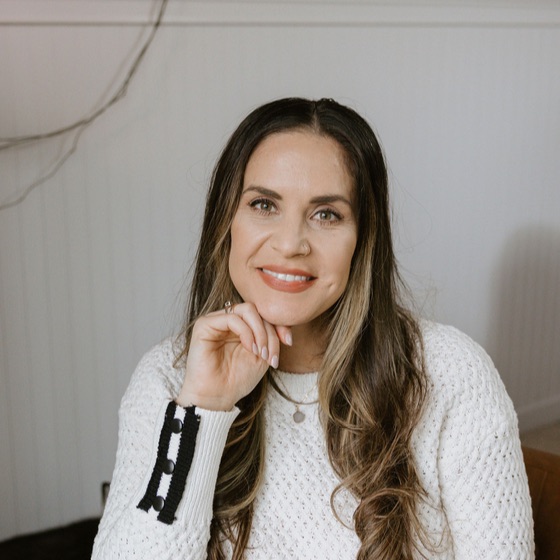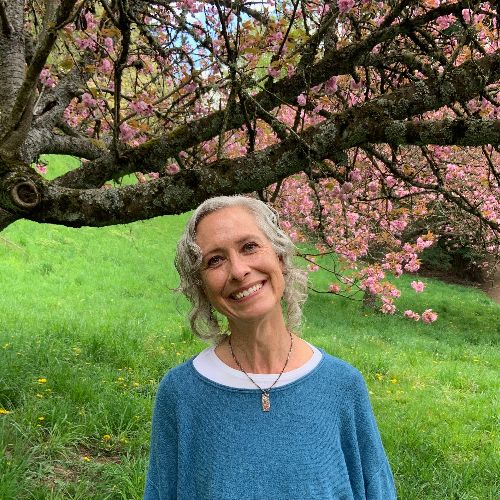Why Local Care Matters for Grief
Finding Grief therapy in Portland connects you with providers who understand local resources, community rhythms, and the ways anniversaries, seasons, and cultural rituals can intensify grief. MiResource’s directory streamlines your search with filters for insurance, availability, and therapy type, so you can quickly see who has openings that fit your schedule and budget. You can also filter for specialties like complicated grief, traumatic loss, or child and family bereavement to match the specific nature of your loss.
Local matches improve care because accessibility, timely appointments, and cultural fit matter when processing grief in Portland’s diverse communities. MiResource makes this simple by letting you sort for evening or weekend slots, in-person or telehealth options, and therapists experienced with group support or trauma‑informed approaches. Finding someone in Portland who aligns with your values and rituals around mourning can strengthen the therapeutic bond and support consistent attendance. Use the directory to compare profiles and select the right approach—CBT, EMDR, or group grief counseling—so your care is both personal and convenient.
Local Options and Community Programs
Local resources in Portland can ease the burden of grief by offering crisis response, counseling, peer support, and practical help close to home. County hotlines and walk-in clinics can stabilize difficult moments, while nonprofits provide peer-led groups and specialized grief services. Health systems and universities offer counseling and therapy, and community clinics provide low-cost, integrated care. You’re not alone—these programs can help you find connection, coping tools, and ongoing support.
1) Crisis Support
2) Public Programs
3) Nonprofits & Support Groups
4) Universities & Health Systems
5) Community Clinics (FQHCs / Sliding-Scale)
The Advantages of Seeing a Portland-Based Therapist
Seeing a Portland-based therapist for Grief means working with someone who understands the city’s rhythms—rainy winters, community rituals, and how nature-centered spaces like Forest Park, Mount Tabor, and the Eastbank Esplanade can support healing. Local clinicians are familiar with neighborhood identities from the Pearl District and South Waterfront to Alberta Arts, Sellwood-Moreland, and St. Johns, and can suggest nearby resources that fit your style. They can connect you with trusted support networks such as the Dougy Center, Providence and Legacy bereavement groups, Cascadia Behavioral Healthcare, and Multnomah County Mental Health & Addiction Services, plus statewide help through Lines for Life. This cultural fluency helps tailor care to Portland’s values of inclusivity, creativity, and community.
In-person sessions are easy to access across the city, with clinics near MAX lines (Blue, Red, Orange), the Portland Streetcar in the Pearl and South Waterfront, and frequent TriMet bus routes on Division, Hawthorne, and Sandy. Many offices are bike- and ADA-friendly, close to landmarks like Powell’s City of Books, OMSI, the Japanese Garden, and Waterfront Park, with convenient parking options in neighborhoods like Hollywood and Hillsdale. Short commutes across bridges such as Tilikum Crossing and the Hawthorne Bridge make it simple to meet face-to-face, even during busy days. Local therapists can also recommend city and county programs, neighborhood support groups, and community events that reinforce healing between sessions.
Holistic Approach to Mental Health in Portland
Holistic care means tending to your mind, body, and environment together—especially important when navigating Grief. In Portland, that can look like gentle movement at The People’s Yoga in NE or Yoga Union in SE, a quiet sit at Portland Insight Meditation Center, and unhurried walks through Forest Park, Washington Park, or along the Eastbank Esplanade. Many find calm in restorative spaces like the Lan Su Chinese Garden or by watching the sunset from Mount Tabor. These small, steady practices complement counseling and help you feel supported day to day.
Beyond traditional therapy, Portland offers community-based healing: grief groups at the Dougy Center in SE, meditation at Dharma Rain Zen Center in NE, and integrative wellness at Root Whole Body in the Pearl and NE. Cultural touchstones—like strolling Alberta Arts District on Last Thursday or visiting the Portland Art Museum—can reconnect you to meaning and community. Weekend farmers markets and green oases like Laurelhurst Park and Sellwood Riverfront Park offer grounding routines. MiResource helps you navigate it all, matching you with therapists and complementary options that fit your neighborhood, schedule, and needs.
What Grief Means
Grief is the deep emotional pain and adjustment that can follow a death, breakup, or other major life change. It can make daily life in Portland—like going to work or school, keeping up with chores, or connecting with others—feel hard, and it’s okay to seek support.
About the Experience of Grief
Grief are natural responses to losing someone or something important, and they can touch every part of life. You might notice sadness, numbness, trouble sleeping, changes in appetite, or difficulty concentrating, and these feelings can come and go in waves. Daily routines in Portland—going to work or school, keeping up with errands, or staying connected with others—may feel overwhelming or confusing. You’re not alone, and it’s okay to move at your own pace while you find support and care.
How Therapy Makes a Difference
Grief therapy in Portland can help you process pain, honor your bond, and gently rebuild daily routines and hope. Evidence-based options like Complicated Grief Treatment (CGT) reduce prolonged grief symptoms and restore functioning, while Cognitive Behavioral Therapy (CBT) eases guilt, rumination, and sleep problems. Acceptance and Commitment Therapy (ACT) helps you carry loss while reconnecting with values and meaningful activities, and EMDR can relieve trauma-related images and triggers. Many people report more calm, clearer memories, and renewed energy for relationships and life goals.
Inside the Therapy Process
In Portland, your first session focuses on sharing your story at a comfortable pace, clarifying goals, and discussing preferences for how you’d like to work together. You and your therapist then create a tailored plan, often drawing on evidence-based approaches like Complicated Grief Therapy/Prolonged Grief Treatment, CBT, ACT, mindfulness, and meaning-centered work. Ongoing sessions blend gentle emotional processing with practical skills for coping, honoring your loss, and re-engaging with daily life, whether in a welcoming Portland office or via telehealth. Throughout, collaboration is central—your feedback guides the pace, methods, and adjustments so the process feels supportive and safe.
Answers to Your Questions About Grief
1. How do I know when it’s time to seek help for Grief?
Grief can make everyday life in Portland feel heavy, and it may be time to seek support if weeks have passed and you’re still struggling to get through routines, work, or school. Signs like persistent sadness or numbness, trouble sleeping or eating, pulling away from people, or relying on alcohol or substances to cope can signal you’d benefit from talking with someone. You might also notice intense guilt, anxiety or panic, or feeling “stuck” despite time and support from others. Reaching out for therapy is a strong, caring step toward easing your pain and finding steadier footing.
2. What if I don’t feel comfortable with my first Grief therapist in Portland?
It’s completely normal if your first Grief therapist in Portland doesn’t feel like the right fit—many people try more than one. The therapeutic relationship matters because feeling safe and understood is key to healing after loss. You don’t need to feel guilty about switching; choosing someone who matches your needs is part of the process. MiResource makes it easy to compare Portland therapists and find a better match quickly.
3. How do I explain my Grief to friends or family?
It’s your choice if, when, and how to share about your grief; you don’t owe anyone details, even to people you love here in Portland. You can set the tone with simple “I” statements like, “I’m grieving and not ready for specifics, but I’d appreciate patience,” and choose a time and person who feel safest. Offer limits and requests: “I’m okay talking for 10 minutes,” “Please just listen,” or “I’m not up for advice.” If a conversation feels too much, it’s okay to change the subject, say you need a break, or follow up later by text or email.
4. Who can diagnose Grief in Portland?
In Portland, psychiatrists, psychologists, licensed therapists, and sometimes primary care doctors can assess your symptoms and diagnose grief-related conditions through a compassionate conversation, history review, and evidence-based screening tools. MiResource lists only qualified, licensed providers in Portland who can give accurate diagnoses and guide you to the right treatment or support. If you’re unsure where to start, any of these professionals can be your first step to care.
5. What causes Grief?
Grief can be shaped by many factors, including biological stress responses, personal history and coping styles, relationships and community support, and the environment and events around you. Everyone’s experience is different, and the intensity and duration can vary from person to person. It isn’t a personal failing or something you should “just get over.” If you’re in Portland and have concerns about your grief, reaching out for support can help.
6. What are the biggest misconceptions about Grief?
Many people think grief is “just a phase” you should get over quickly, but it’s a real, complex health experience that affects your emotions, body, and daily life in different ways and timelines. Another myth is that grieving shows weakness; in truth, feeling and expressing grief is a sign of courage and connection. You also don’t have to “move on” by a certain date—healing often looks like learning to live with the loss, not erasing it. If you’re in Portland, reaching out for professional support is a strong, positive step—there’s no shame in getting help.













